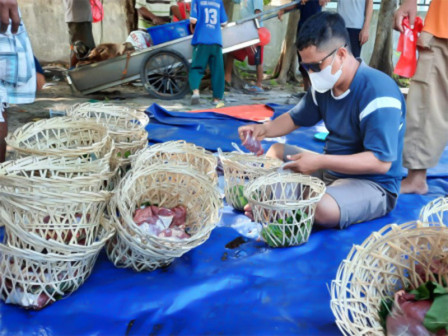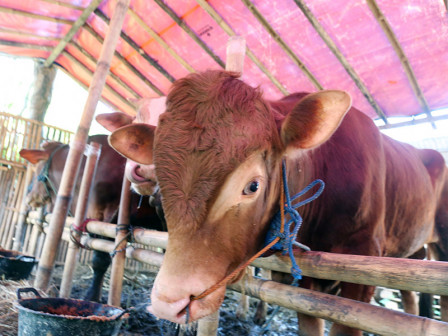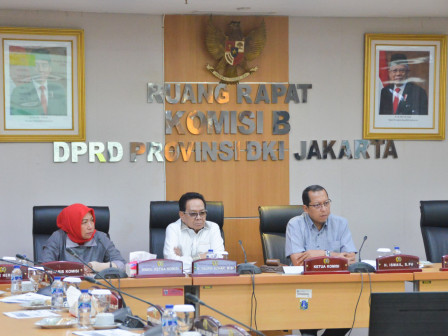Jakarta Residents Prompted to Adopt Ecoqurban on Idul Adha
Reported by Aldi Geri Lumban Tobing | Translated by Nugroho Adibrata
The Jakarta Environment (LH) Agency prompts Jakarta residents to adopt Ecoqurban, which is using eco-friendly containers in distributing qurban (sacrifice) meat during Idul Adha the Day of Sacrifice, which falls on Thursday (6/19).
There are many alternatives to plastic bags or disposable plastic
Ecoqurban can be applied starting from the process of slaughtering qurban animals that do not pollute the environment to distributing qurban animals to recipients in environmentally friendly containers.
Jakarta LH Agency Head, Asep Kuswanto stated the qurban committee and the public can contribute to the application of eco-qurban principles, such as keeping the qurbani area clean, not letting animal waste scatter, and using environmentally friendly containers.
2,790 Qurban Animals in West Jakarta Have Passed Health ExaminationAccording to him, the cattle also produce sewage before the sacrifice. This sewage must be properly managed, for instance through communal composting or landfilling.
"The practice of leaving sacrificial waste indiscriminately is a dangerous practice, as pieces of animal innards become a medium for the development of pathogens that can transmit disease. In addition, waste can make the condition of water bodies polluted," he explained, Monday (6/19).
He explained the waste that is dumped into the body can have very bad consequences for the environment. The pathogens that cause this disease can transmit diseases such as hepatitis, typhoid and eye, as well as foot and mouth disease (FMD).
"Moreover, the disposal is quite massive, it can have a very broad impact," he explained.
His party also asked the public to use environmentally friendly containers for distribution of qurbani meat. The environmentally friendly container in question is a container made of materials that can be decomposed by nature.
He explained the community or the sacrificial committee can use environmentally friendly containers such as banana leaves, taro leaves, teak leaves, bamboo baskets, coconut leaf baskets, and pandan leaf baskets.
The use of this environmentally friendly container is a follow-up to the Governor of Jakarta Regulation Number 142/2019 on the Obligation to Use Environmentally Friendly Shopping Bags.
"There are many alternatives to plastic bags or disposable plastic, one of which is bongsang or baskets made of woven bamboo," he explained.
He added plastic bags are a type of waste that takes decades to decompose naturally. Aside that, black plastic bags are the result of the recycling process of used plastic which contains carcinogens and is harmful to health.
"In the manufacturing process, various chemicals are also added which add to the harmful impact on health and we also cannot know the use of the black plastic before it is recycled," he closed.




